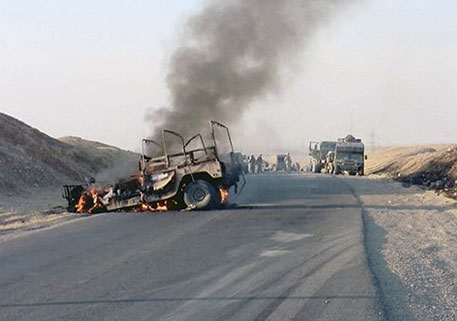 The new year signifies a fresh start. It is a time to reflect on the past, set new goals and embrace new opportunities. With a new administration and the 119th Congress set to begin, we have a chance to create a better future for our veterans and their families, caregivers and survivors.
The new year signifies a fresh start. It is a time to reflect on the past, set new goals and embrace new opportunities. With a new administration and the 119th Congress set to begin, we have a chance to create a better future for our veterans and their families, caregivers and survivors.
For the 119th Congress, DAV’s legislative priorities include strengthening Department of Veterans Affairs policies for toxic-exposed veterans; eliminating gaps in mental health care and suicide prevention efforts; prevent taxing, offsetting or reducing veterans benefits; modernizing survivors benefits; making dental care a health benefit for all service-disabled veterans; improving caregiver support and providing more long-term care options for service-disabled veterans; and establishing new funding mechanisms for VA infrastructure to sustain the VA’s role as primary provider and coordinator of veterans health care.
We are also looking to build off the successes of our two most recent reports, Women Veterans: The Journey to Mental Wellness and Ending the Wait for Toxic-Exposed Veterans. In The Journey to Mental Wellness, we described the unique factors that contribute to the significantly increased rate of suicide among women veterans and provided over 50 policy and legislative recommendations intended to spark necessary and urgent change that can save lives. With Ending the Wait, we showed that, on average, veterans have to wait over 34 years post-exposure to receive access to the full range of health care and benefits they urgently need, and we provided a blueprint to dramatically reform the process and government handling of service-related toxic exposures.
Online advocacy has become a powerful tool to raise awareness, mobilize support, and influence legislation and policy. Our efforts through DAV CAN (Commander’s Action Network) have grown tremendously over the last couple of years, but we still need to encourage friends, family members and other veterans in our networks to join at davcan.org. Last year, members and supporters took over 600,000 actions to support our legislative advocacy through DAV CAN.
While online platforms and social media have expanded our reach and increased our influence with elected officials, there is still no more effective form of advocacy than in-person engagement. With that in mind, I hope you join us for our annual mid-winter conference in Washington, D.C., Feb. 23–26.
Our mid-winter conference is the premier veterans advocacy event and provides DAV members with an opportunity to meet face-to-face with your elected officials and build stronger relationships with decision-makers. Your presence and meetings during our mid-winter conference put a human face on the most pressing issues affecting the veteran community.
In the year ahead, through advocacy, coalition building and strategic engagement, we can improve the lives of our nation’s ill and injured veterans and their families, caregivers and survivors.






